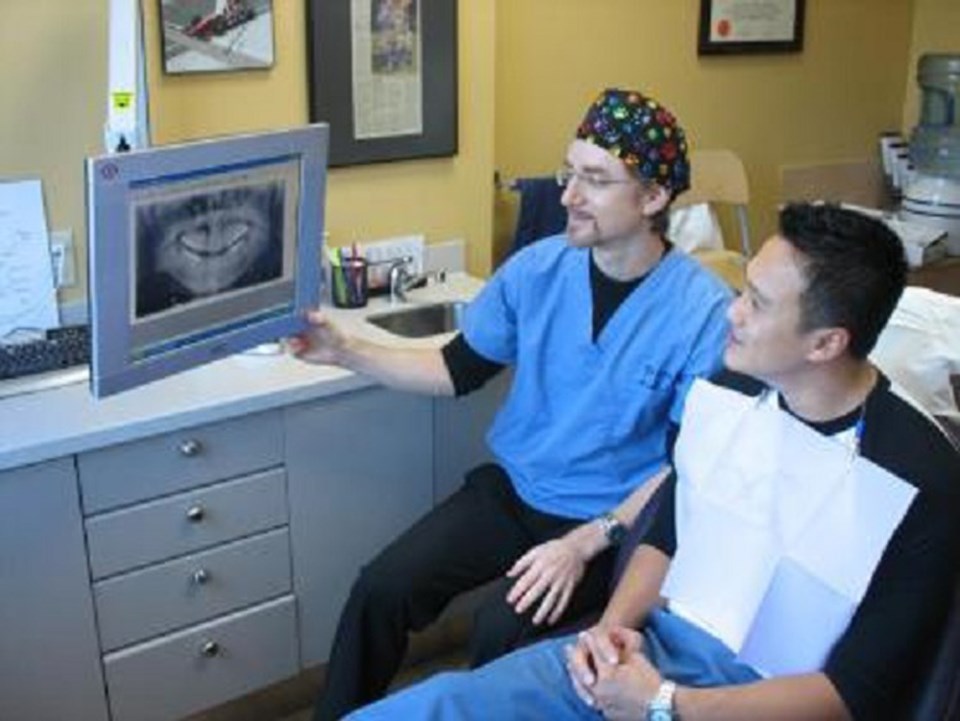Gone are the days when your only option for replacing lost teeth was ill-fitting dentures. Although dental prostheses have come a long way since your grandmother's time, many people find dentures uncomfortable and difficult to wear.
One option is the dental implant. At his practice located in Burnaby Square, Dr. Stuart Katz offers the option of dental implants to his Burnaby and New Westminster patients.
"The benefit of dental implants," explains Dr. Katz, "is that you can have one or many. The procedure involves placing a small post, rather like a screw, made from titanium into the jawbone. Then we put an artificial tooth on top of it, if it's for a single tooth replacement. With 2 to 3 implants we can stabilize a lower denture that can often be difficult to wear. With 5 – 7 implants, you could conceivably have a full arch of replacement teeth."
Dr. Katz is quick to add that the best approach is to make sure that you don't lose your teeth in the first place.
“There are subtle differences between natural teeth and implant supported teeth, but both serve to preserve the bone that surrounds the teeth. In most cases, a dental implant is the best way to replace a missing tooth.”
"No matter how good the implant or the dentures are, they're never as good as your own healthy teeth,” he says. “Teeth have ligaments attaching them to the bone. When you clench your teeth, for example, the teeth will move up and down supported by the ligament. Dental implants won't do that. The implant is screwed into the bone and it's fixed."
To be a good candidate for dental implants, you should be in good overall health, with healthy gums with enough bone to support the implant. If you're lacking sufficient bone, a bone graft might be needed.
"It used to be that we could only place implants where the bone was," Dr. Katz says. "Now, if the patient is otherwise considered to be a good candidate for implants and a bone graft, we can place the implant where it's needed. As dentists, we're learning to manipulate not only the soft tissue, but also the hard tissue."
What might be a drawback for dental implants?
"Usually the price," notes Dr. Katz. "The procedure is usually not covered by insurance to the same degree that other forms of tooth replacement, and the fee is definitely higher.”
Dr. Katz and his team offer informational sessions on dental implants and a thorough consultation to make sure their patients are fully informed about both the procedure and the potential cost.
"I will place and restore straightforward cases to keep the costs down for patients," he says, "We have a 3D scanner here in the office for treatment planning that saves the patient travelling elsewhere."
For more information on Dr. Stuart Katz and his dental practice, phone 604.524.9596, visit the website, or send an email. Dr. Katz can also be found on Facebook .



